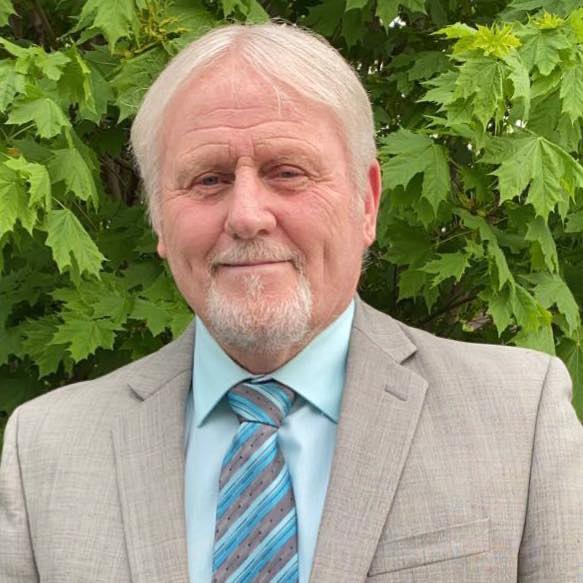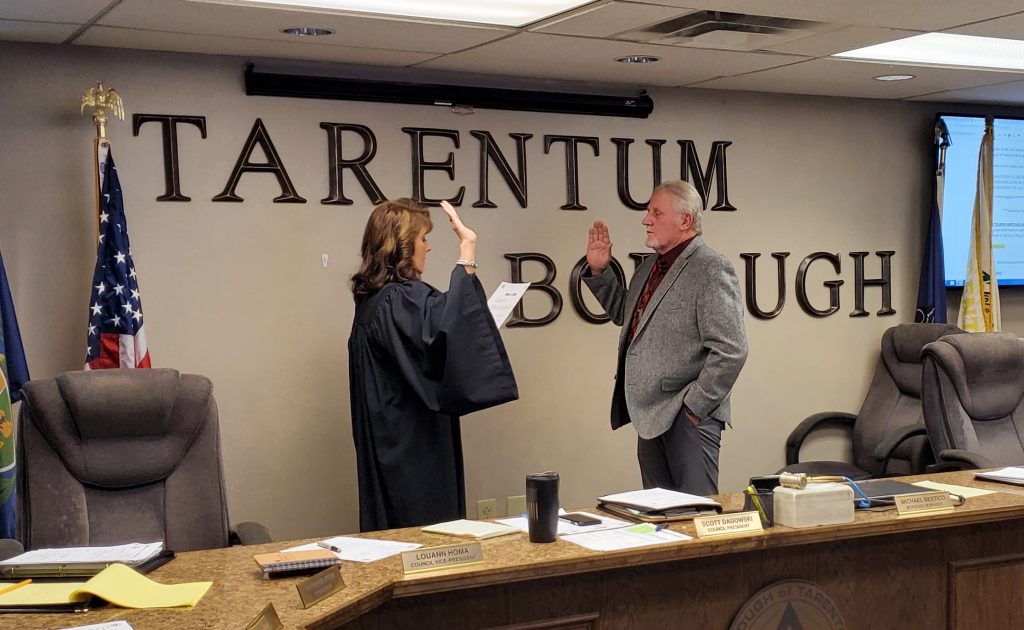Mayor Bob Lang
Mayor Bob Lang is currently serving his first term as Mayor of Tarentum Borough. Mayor Lang was appointed by Council on November 9, 2021 to fill the unexpired term of former Mayor Eric Carter. Mayor Lang was subsequently sworn in to office on January 4, 2022 to begin his first full term as Mayor of Tarentum Borough.
Prior to his election, Mayor Lang previously served as a Tarentum Borough Police Officer with 25 years of dedicated service. Upon reaching his 25th year of service, Mayor Lang retired from the Police Department on September 1, 2020.
Mayor Lang currently resides in Tarentum Borough with his wife, Lori.


Role of the Mayor
Duties of the Mayor.
Pursuant to the Pennsylvania Borough Code, the mayor shall have the duty to preserve order in the borough, enforce the ordinances and regulations of the Borough, and to perform any other duties as shall be vested in the Mayor’s office by law or ordinance.
The Mayor shall sign papers, contracts, obligations and documents as may be required by law.
Lastly, the Mayor may also collect any costs and fees received and to pay the money into the treasury, to report to the council from time to time on the state of the borough and to make recommendations to the council on matters of borough concern.
History of the Mayor.
The role of the office of mayor has evolved over the years within the structure of borough government responding to changing attitudes about the nature and functioning of municipal government. In the middle of the 19th century, the mayor of today was known as the burgess and was the central figure in borough government. The burgess presided over council meetings, had a vote on all issues and appointed committee members. The burgess also was the chief executive officer, appointing many officials and exercising general supervision over borough government. Lastly, the burgess was a judicial officer hearing all cases involving violations of borough ordinances.
Toward the end of the 19th century, the people of Pennsylvania came to believe that the concentration of executive, legislative and judicial powers in one individual was not the best way for a borough government to operate. Over time, various powers exercised by the burgess were given to other elected officials. The judicial powers formerly held by burgesses are now exercised by the Magisterial District Judges, whose magisterial districts are a part of the unified judicial system established in Article V of the Pennsylvania Constitution. Borough councils now exercise most of the appointive and legislative powers formerly exercised by burgesses. This change in powers necessitated a change in title from burgess to mayor.
Despite the change in powers and title, the borough mayor of today continues to be the most recognizable and in many boroughs, is the most important public official in borough government. As previously noted, the borough mayor is the only executive in borough government elected by people. The mayor is the chief law enforcement officer of the borough and the elected official who takes charge during the time of an emergency. Although the mayor does not generally vote on legislative matters, he/she can vote in the event of a tie, veto an ordinance passed by council, attend and participate in all meetings of council and from time to time report to council on the state of the borough. In many boroughs the mayor is the only borough-wide elected person who participates in the work of the borough on a regular basis.
Within their boroughs, mayors are also in a unique position to exercise leadership because of the prestige of their office and its elected status. In many boroughs, the extent of the mayor’s role will be determined by the mayor’s view of civic responsibilities, personal skills, background in governmental affairs and individual interests. To a large degree, the mayor’s role is also defined by the local political culture, the generalized local attitudes toward municipal government and commonly-held expectations of how public officials should operate.
Borough Mayor’s Manual. PA Local Government Center Handbook (2016).